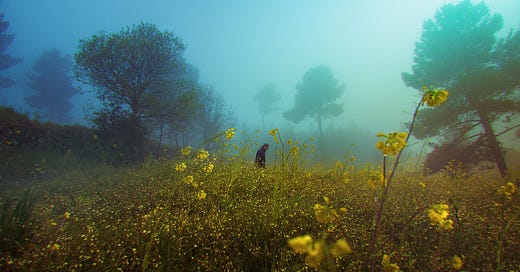In a dark time, the eye begins to see, I meet my shadow in the deepening shade; I hear my echo in the echoing wood-- A lord of nature weeping to a tree, I live between the heron and the wren, Beasts of the hill and serpents of the den. What's madness but nobility of soul At odds with circumstance? The day's on fire! I know the purity of pure despair, My shadow pinned against a sweating wall, That place among the rocks--is it a cave, Or winding path? The edge is what I have. A steady storm of correspondences! A night flowing with birds, a ragged moon, And in broad day the midnight come again! A man goes far to find out what he is-- Death of the self in a long, tearless night, All natural shapes blazing unnatural light. Dark, dark my light, and darker my desire. My soul, like some heat-maddened summer fly, Keeps buzzing at the sill. Which I is I? A fallen man, I climb out of my fear. The mind enters itself, and God the mind, And one is One, free in the tearing wind.
You can find this poem in The Collected Poems of Theodore Roethke





Wow...WOW. This poem really knocks the idea of madness as a 'dangerous gift' out of the park! The power and potential of poetry to embody the human condition is implicit in the lines: "What's madness but nobility of soul, At odds with circumstance?" This poem does not set out to romanticize madness, but move away from pathologizing it as a disease of the mind and recognizing it (largely) as a reflection of a social condition. Madness does not exist in a vacuum. Trauma plays a huge part in stoking one feeling "at odds..."
"What's madness but nobility of soul
At odds with circumstance?"
Now THIS - love this. Reminds me of a line in Lila, Pirsig's follow-up to Zen & the Art of Motorcycle Maintenance:
"Ask, 'If there were only one person in the world, is there any way he could be insane?' Insanity always exists in relation to others. It is a social and intellectual deviation, not a biological deviation. The only test for insanity in a court of law or anywhere else is conformity to a cultural status quo. That is why the psychotic profession bears such resemblance to the old priesthoods. Both use physical restraint and abuse as ways of enforcing the status quo."